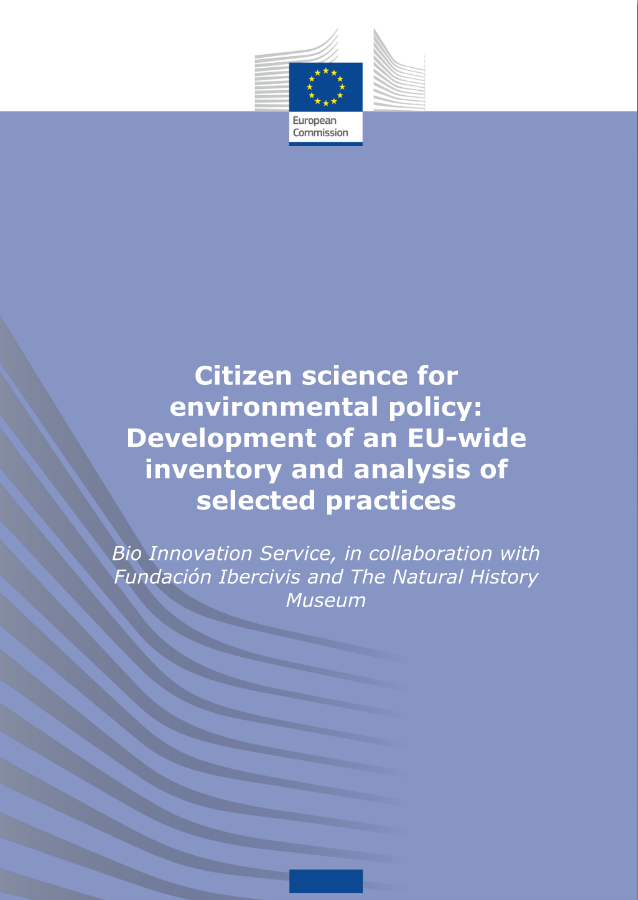«Citizen science is the non-professional involvement of volunteers in the scientific process, whether in the data collection phase or in other phases of the research. Citizen science is a powerful tool for environmental management that has the potential to inform an increasingly complex environmental policy landscape and to meet the growing demands from society for more participatory decision-making. While there is growing interest from international bodies and national governments in citizen science, however the evidence that it can successfully contribute to environmental policy development, implementation, evaluation or compliance remains scant. Central to elucidating this question is a better understanding of the benefits delivered by citizen science, that is to determine to what extent these benefits can contribute to environmental policy, and to establish whether projects that provide policy support also co-benefit science and encourage meaningful citizen engagement. The aim of this study was to provide the European Commission with an evidence base of citizen science activities that can support environmental policies in the European Union (EU). The first objective was to develop an inventory of citizen science projects relevant for environmental policy and assess how these projects contribute to the Sustainable Development Goals (SDGs) set by the United Nations (UN) General Assembly. To this end, a desk-research and an EU-wide survey were used to identify 503 citizen science projects of relevance to environmental policy. The second objective was to assess the conditions under which citizen science can best support environmental policy, through the selection and analysis of a sample of citizen science projects. This was followed by an in-depth analysis of 45 projects along 94 project attributes. Subsequently, this analysis provided the foundation for making a series of recommendations to leverage the contribution of citizen science to environmental policy.«
Puedes acceder al documento en el siguiente enlace:

